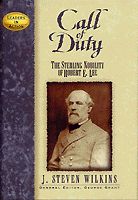Saturday, July 20, 2013
Biblical Christianity
We cannot preach the gospel unless we preach “Calvinism:” justification by faith, without works; nor unless we preach the sovereignty of God in his dispensation of grace; nor unless we exalt the electing, unchangeable, eternal, immutable, conquering, love of Jehovah: nor do I think we can preach the gospel, unless we base it upon the peculiar redemption which Christ made for His elect and chosen people; nor can I comprehend a gospel which lets saints fall away after they are called, and suffers the children of God to be burned in the fires of damnation after having believed. Such a gospel I abhor. The gospel of the Bible is not such a gospel. We preach Christ crucified in a different fashion, and to all gainsayers we reply. "We have not so learned Christ." (Charles Spurgeon)
If salvation is based on man and his confession, apart from the grace of God, he cannot stand, but, salvation based on the promise and power of God cannot fail: "All those who the Father gives me, no one will take out of my hand."
God is the ultimate, Sovereign authority in law, truth and reality. God is the ultimate source of man’s salvation and He must be the center of man’s life and worship.
Humanism asserts that man is the ultimate, sovereign authority in reality, truth and ethics. The essence of humanism is that man is the ultimate source of man’s salvation and man (or corporate man, the state) must be the center of man’s life and worship.
God said, apostate Israel was "not beloved." Those who leave the faith (e.g. Karl Marx, Frederick Nietzsche, Jean-Jacque Rousseau, etc.) are apostates, not covenant sons.
Hear Calvin on this matter (from the Institutes of the Christian Religion): “By the Gospel, I understand the clear manifestation of the mystery of Christ. I confess, indeed, that inasmuch as the term Gospel is applied by Paul to the doctrine of faith (1 Tim. 4:6), it includes all the promises by which God reconciles men to himself, and which occur throughout the Law. For Paul there opposes faith to those terrors which vex and torment the conscience when salvation is sought by means of works. Hence it follows that Gospel, taken in a large sense, comprehends the evidences of mercy and paternal favor which God bestowed on the Patriarchs. Still, by way of excellence, it is applied to the promulgation of the grace manifested in Christ.” (2.9.2)
Labels:
Theology




























































No comments:
Post a Comment